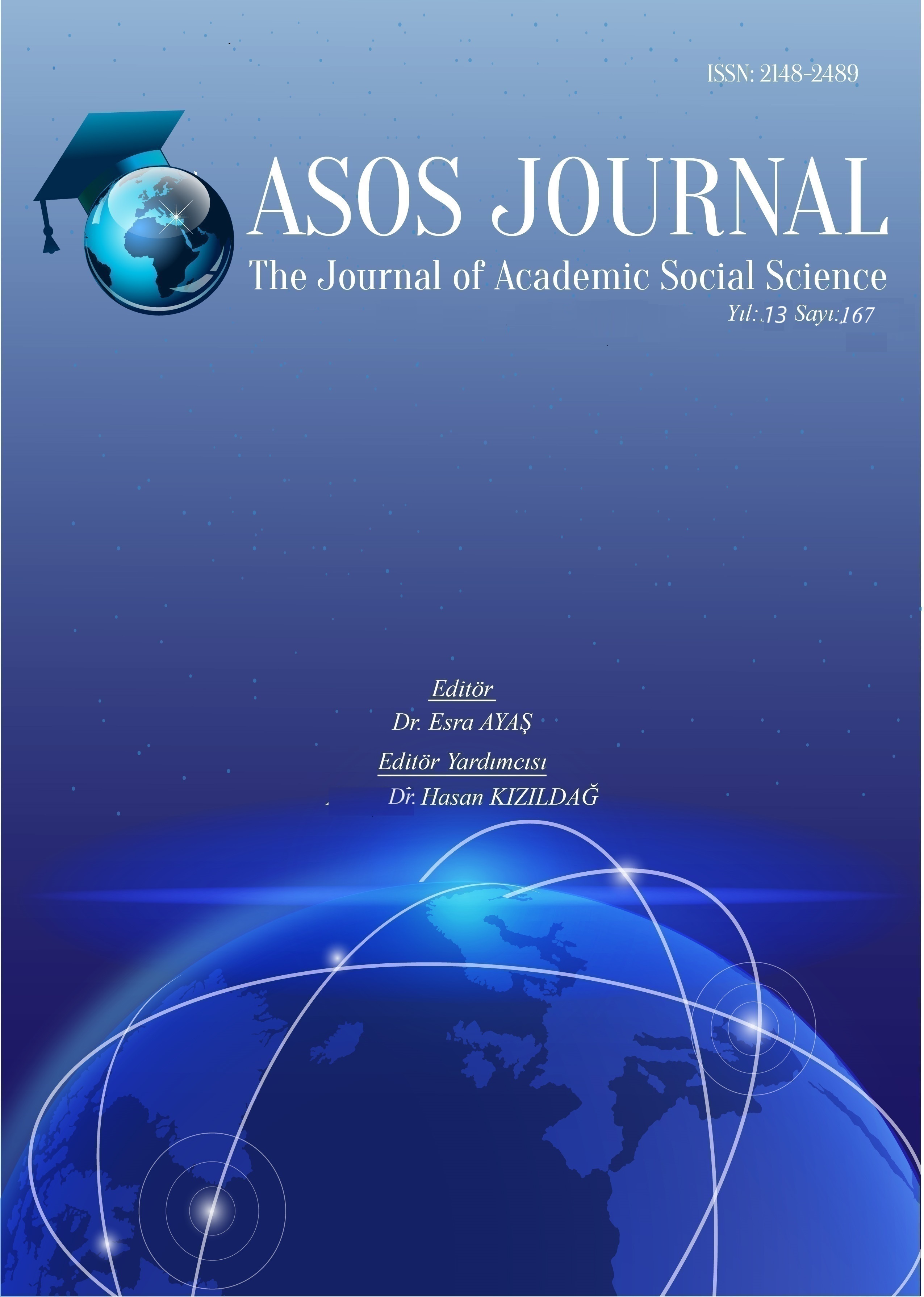TÜRKİYE YÜZYILI MAARİF MODELİ TARİH PROGRAMI ÇERÇEVESİNDE HAZIRLANAN 9. SINIF TARİH DERS KİTABININ KADIN TARİHİ VE TOPLUMSAL CİNSİYET BAĞLAMINDA DEĞERLENDİRİLMESİ
Author :
Abstract
Bu çalışma, Türkiye Yüzyılı Maarif Modeli kapsamında hazırlanan 9. Sınıf tarih ders kitabını, kadın tarihi ve toplumsal cinsiyet perspektifiyle değerlendirmektedir. Çalışmanın temel amacı, yeni eğitim modelinin kadın tarihi öğretimine ne ölçüde yansıdığını incelemek ve tarih ders kitaplarında kadın temsiline dair mevcut durumu ortaya koymaktır. Doküman analizi yöntemiyle gerçekleştirilen çalışmada, ders kitabı içerik analizi tekniği kullanılarak ele alınmıştır. Kitabın seçiminde amaçlı örneklem kullanılmıştır. Metinler, görseller ve kadın figürlerine yapılan atıflar değerlendirilmiş; kadınların tarihsel aktör olarak ne ölçüde yer aldığı belirlenmiştir. Bulgulara göre, kitapta kadınlar genellikle toplum içindeki konumları üzerinden aktarılmaktadır. Tarihsel rolleri ve katkılarının ise büyük ölçüde göz ardı edildiği farkedilmektedir. Eski Çağ ve Orta Çağ gibi geniş dönemleri kapsayan kitapta yalnızca sekiz kadın şahsiyete yer verilmesi ve 321 görselin sadece 26’sında kadın figürlerinin bulunması, kadın tarihi öğretimi açısından önemli bir eksikliktir. Sonuç olarak, ders kitabında toplumsal cinsiyet eşitliği vurgusu bulunmakla birlikte, kadınların tarihsel özne olarak görünürlüğü zayıf kalmaktadır. Kadın tarihi öğretiminin güçlendirilmesi için kadınların tarihsel rollerini öne çıkaran daha kapsayıcı ve çok yönlü içeriklere ihtiyaç bulunduğu söylenebilir.
Keywords
Abstract
This study evaluates the 9th-grade history textbook prepared within the scope of the Türkiye Century Maarif Model from the perspective of women's history and gender. The main aim of the research is to examine the extent to which the new education model reflects women's history and to reveal the current state of female representation in history textbooks. The study was conducted using the document analysis method, and the textbook was examined through content analysis. Purposeful sampling was used in the selection of the textbook. Texts, visuals, and references to female figures were analyzed to determine to what extent women are represented as historical actors. According to the findings, women are mostly presented in relation to their social positions, while their historical roles and contributions are largely overlooked. Despite covering extensive historical periods such as Ancient Times and the Middle Ages, the textbook includes only eight named female figures, and out of 321 visuals, only 26 depict women. This indicates a significant deficiency in the teaching of women's history. Although the textbook demonstrates some effort toward gender equality, the visibility of women as historical subjects remains limited. In conclusion, strengthening the teaching of women's history requires more inclusive and multidimensional content that highlights women's historical roles.





